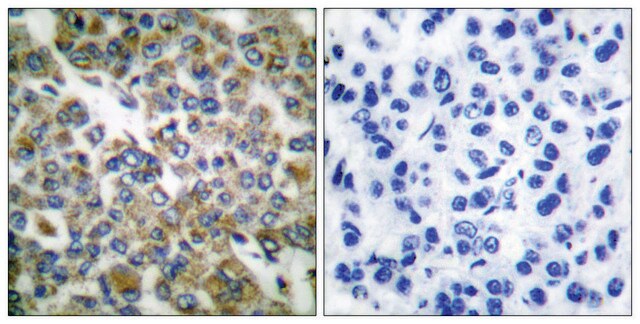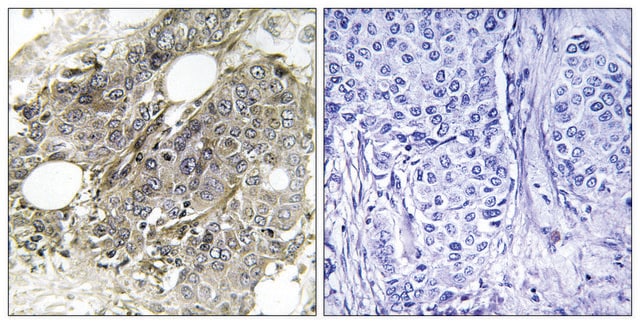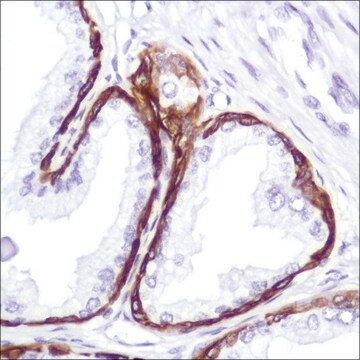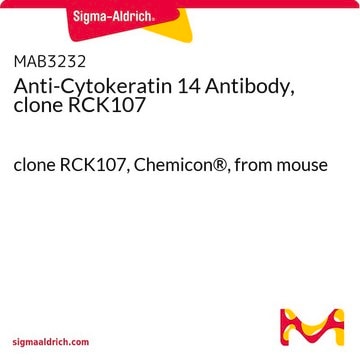SAB5500124
Anti-Keratin 14 antibody, Rabbit monoclonal
clone SP53, recombinant, expressed in proprietary host, affinity isolated antibody
Synonyme(s) :
Anti-CK14, Anti-EBS1, Anti-EBS1A, Anti-EBS1B, Anti-EBS1C, Anti-EBS1D, Anti-EBS3, Anti-EBS4, Anti-K14, Anti-NFJ
About This Item
Produits recommandés
Source biologique
rabbit
Niveau de qualité
Produit recombinant
expressed in proprietary host
Conjugué
unconjugated
Forme d'anticorps
affinity isolated antibody
Type de produit anticorps
primary antibodies
Clone
SP53, monoclonal
Espèces réactives
human (tested)
Réactivité de l'espèce (prédite par homologie)
rat, bovine, mouse, pig
Technique(s)
flow cytometry: 1:100
immunoblotting: 1:25
immunohistochemistry: 1:100
Isotype
IgG
Numéro d'accès UniProt
Conditions d'expédition
wet ice
Température de stockage
2-8°C
Modification post-traductionnelle de la cible
unmodified
Informations sur le gène
human ... KRT14(3861)
Description générale
Immunogène
Caractéristiques et avantages
Forme physique
Clause de non-responsabilité
Vous ne trouvez pas le bon produit ?
Essayez notre Outil de sélection de produits.
Code de la classe de stockage
10 - Combustible liquids
Classe de danger pour l'eau (WGK)
WGK 2
Point d'éclair (°F)
Not applicable
Point d'éclair (°C)
Not applicable
Certificats d'analyse (COA)
Recherchez un Certificats d'analyse (COA) en saisissant le numéro de lot du produit. Les numéros de lot figurent sur l'étiquette du produit après les mots "Lot" ou "Batch".
Déjà en possession de ce produit ?
Retrouvez la documentation relative aux produits que vous avez récemment achetés dans la Bibliothèque de documents.
Notre équipe de scientifiques dispose d'une expérience dans tous les secteurs de la recherche, notamment en sciences de la vie, science des matériaux, synthèse chimique, chromatographie, analyse et dans de nombreux autres domaines..
Contacter notre Service technique






